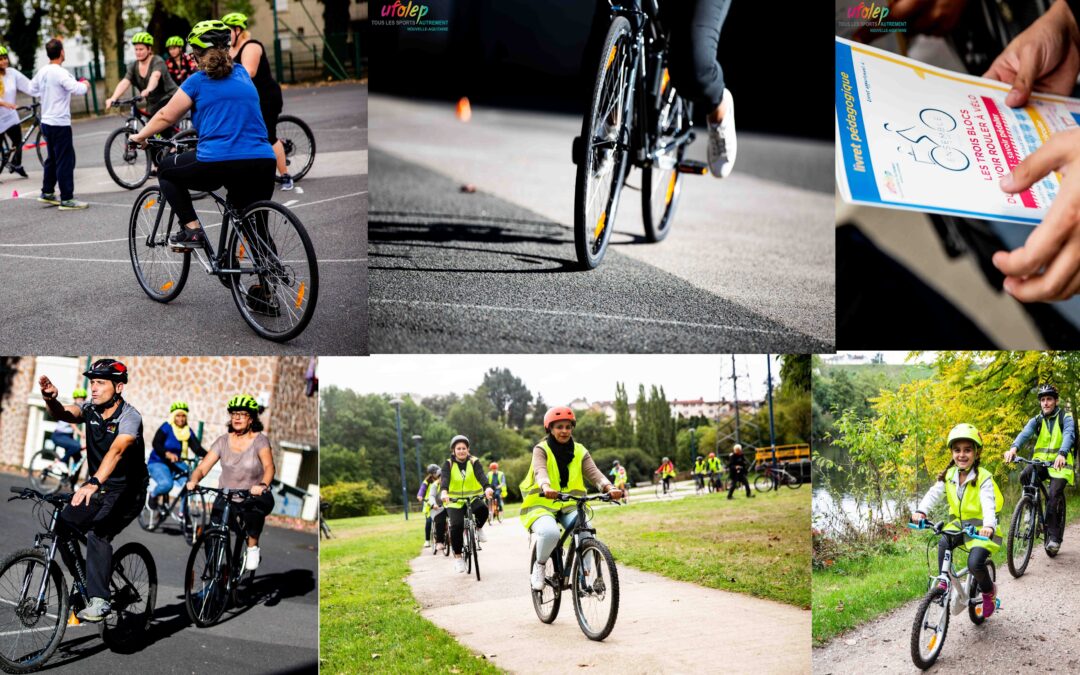The French government launched an ambitious cycling plan in September 2018. Not a week goes by without an institutional communication or major media promoting the use of the bike in daily life. The mayors of the big cities open reserved lanes, the government subsidize e-bike purchase, the government triple (from 20 to 60 million euros) the amount of the Bike Plan. Bicycles are everywhere presented as a solution to the health, social, ecological and economic challenges faced by the society.
In 1950, cycling accounted for more than 20% of travels in the country. But it soon disappeared in favour of motorized transport: today, cycling accounts for barely 3% of daily trips, so that on average the French cycle less than the Germans over 75. Yes, the country of the Tour de France is at the bottom of the ranking of European countries when it comes to the daily use of bicycles!
One of the questions is if one of the many effects of the health crisis could increase the modal share of cycling, especially in relation to cars and public transport? If the city was built yesterday on concrete, mechanics, engine, crowd, mass, today, what makes people dream today is nature, gardens, sport, active mobility, pure air, silence… In short, everything that is oriented around the well-being of the body and the body in motion». Slowing down, proximity, individual health and balance, self-fulfilment are today the drivers of physical activity in more and more people. And tomorrow, how will our modes of travel reflect our lifestyles? But the impact of the health crisis, by combining the demands of physical distancing, aspirations for the well-being of the population and ecological awareness, can save us valuable time. The target is set at 9% modal share by 2024.
“The proactive steps taken by the State in terms of development and safety of cycling will be decisive. But this will not be enough to create the conditions of a «cycling ecosystem» promoting the emergence of a more active nation: it is also necessary to accompany all the public and all the territories, urban, peri-urban and rural, towards a daily and natural use of cycling, and to promote the learning of the youngest. And this is where UFOLEP must play its role as a federation of sport for all, if we want to rediscover the «cycling culture» that used to be ours. “
Vincent Bouchet, CTS UFOLEP / Outdoor Sports senior advisor at UFOLEP
The Union Française des Oeuvres Laïques d’Education Physique (UFOLEP) is a non-governmental association and the largest multisport federation of France, part of the popular education movement. By advocating “otherwise” sport, it aims to make-sport a tool of citizenship, education and a vehicle for emancipation and personal development and community empowerment.
One of the objectives is to impact collective representations. One of the key factors is the appropriation and communication on the complementarities between physical activities of daily life that are active mobility (cycling, walking, running) and sports practices codified and more focused on surpassing oneself. The sports culture promoted by the organisation is further anchored in the life paths of the public furthest from physical activity.
The “Ensemble à vélo” programme, which is now being tested as a pilot by UFOLEP in Nouvelle-Aquitaine region, is in line with this vision. It focuses primarily on the learning of young people through a national bike education programme called “Savoir Rouler à Velo”. But it is also a matter of convincing decision-makers (including elected officials and those in charge of local authorities) and large educational community (parents, educational institutions, local authorities) and helping audiences furthest from sports participation to get back on track: seniors, women, people with social difficulties and all the inhabitants of peri-urban and rural areas, for whom the car has become the only means of travel.
The strength of the UFOLEP is to engage with communities and areas where more traditional federations do not usually go. Promoting the use of bicycles on a daily basis is in line with UFOLEP’s ambitions for citizenship education, social cohesion and ecological transition. UFOLEP just joined the ENOS network in March 2021.
Contact Vincent Bouchet : vbouchet.laligue@ufolep-usep.fr
More information at www.ufolep.org

